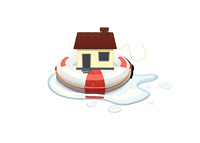Liar Loans, Teaser Loans and Stretch Loans: What Exactly Are They?
 Liar loans. Teaser loans. Stretch loans. With all of the recent turmoil in the mortgage markets in the United States, you have probably heard one or all of these terms talked about on the nightly news. These three types of loans are three of the major reasons why there has been such a fall-out in the subprime mortgage market. The question you probably have though, is what exactly do they mean?
Liar loans. Teaser loans. Stretch loans. With all of the recent turmoil in the mortgage markets in the United States, you have probably heard one or all of these terms talked about on the nightly news. These three types of loans are three of the major reasons why there has been such a fall-out in the subprime mortgage market. The question you probably have though, is what exactly do they mean?1. Liar Loan. As the real estate market continued to race higher over the past 3-4 years, lenders became increasingly lenient when it came to performing checks on the people that were borrowing money. A liar loan is a shining example of this.
Basically a liar loan means that the lender would simply ask the borrower how much money they made, but would never check to make sure it was actually accurate. I could have told the lender that I made one million dollars per year, thus qualifying for a very big mortgage. They would never ask for evidence of this, so I would qualify for an extra large mortgage, even though I really couldn't afford it.
2. Teaser loan. This type of loan has artificially low interest rates for the first two years of the loan. After two years, the interest rate is reset and the payment will jump, even though the borrower may not be able to afford their payments at this higher rate. This type of loan can also be known as the "2 and 28."
3. Stretch loan. This is where the borrower would need to pay over 50% of their gross income towards the mortgage payment. Gross, not net!
No wonder the mortgage market has had such troubles over the past few months. With all of these types of mortgage swirling out there, it's a wonder to me that the fall-out hasn't been more dramatic.
On top of these three types of mortgages, you then have:
"Balloon mortgages" - you only pay interest for 10 years and then make a huge lump sum payment
"Option ARM" - the borrower can pay less than the agreed-upon interest and principal payment, and simply add to the balance of the loan.
I mean, come on. Whatever happened to actually being able to afford your mortgage, and if you couldn't afford it, you just rented until you could?
Filed under: Real Estate News | General Knowledge



